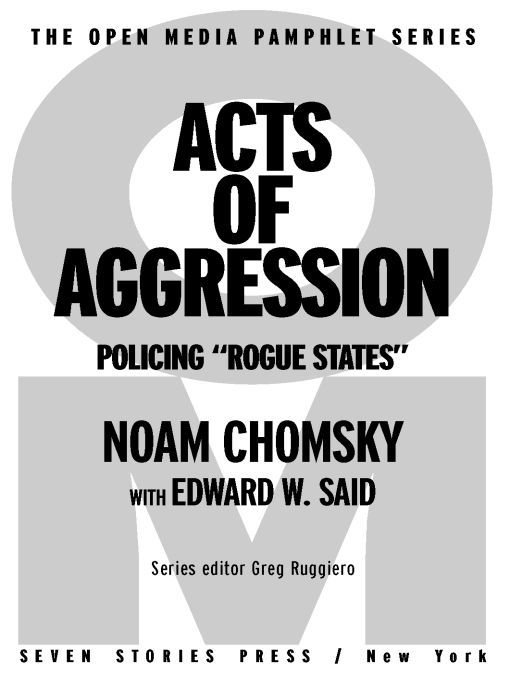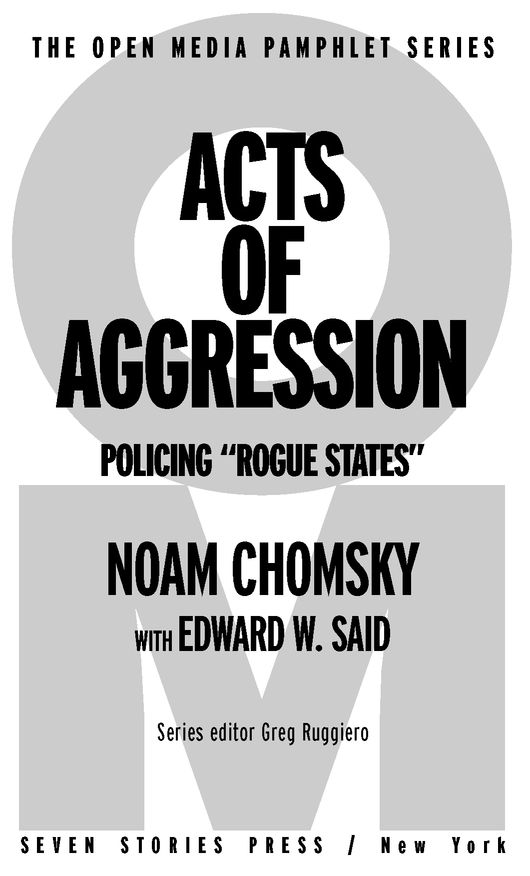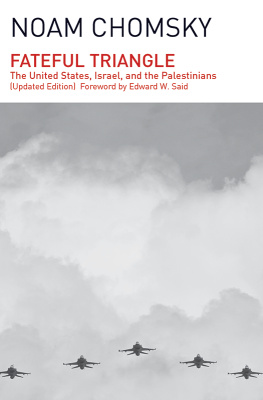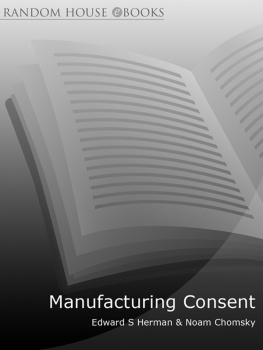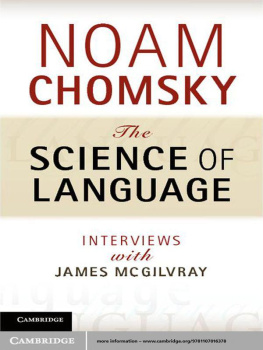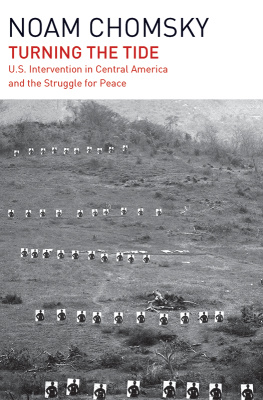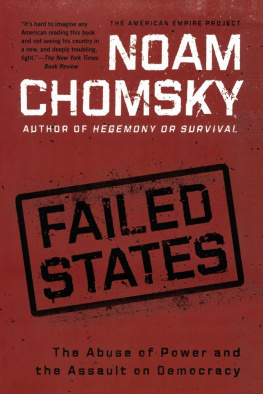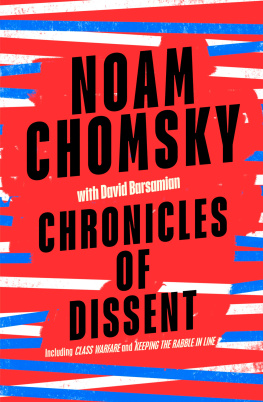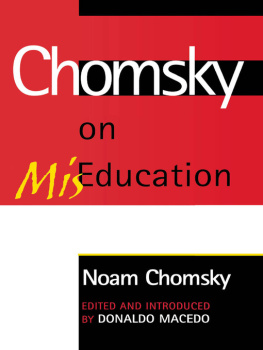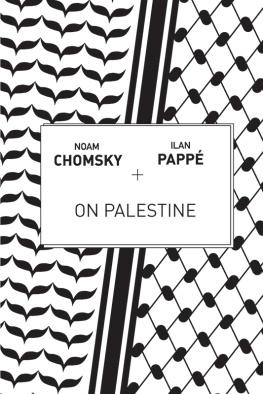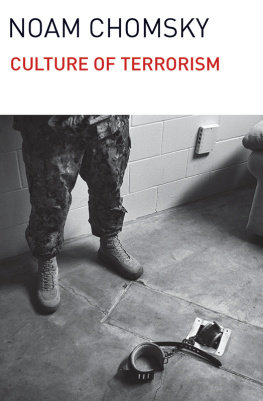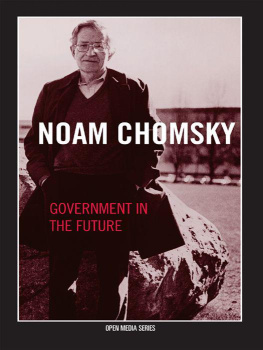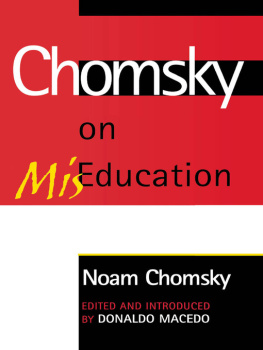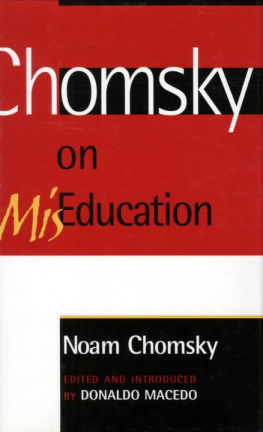Table of Contents
OTHER OPEN MEDIA PAMPHLET SERIES TITLES
THE UMBRELLA OF U.S. POWER
Noam Chomsky
80 pages / $6.95 / ISBN: 1-58322-547-1
SECRET TRIALS AND EXECUTIONS: MILITARY TRIBUNALS AND THE THREAT TO DEMOCRACY
Barbara Olshansky 80 pages / $6.95 / ISBN: 1-58322-537-4
10 REASONS TO ABOLISH THE IMF & WORLD BANK
Kevin Dahaner
104 pages / $6.95 / ISBN: 1-58322-464-5
SENT BY EARTH
Alice Walker
64 pages / $5.00 / ISBN: 1-58322-491-2
TERRORISM: THEIRS AND OURS
Eqbal Ahmad
64 pages / $6.95 / ISBN: 1-58322-490-4
OPEN MEDIA BOOKS
9-11
Noam Chomsky
128 pages / $8.95 / ISBN: 1-58322-489-0
TERRORISM AND WAR
Howard Zinn
160 pages / $9.95 / ISBN: 1-58322-493-9
BIN LADEN, ISLAM, AND AMERICAS NEW WAR ON TERRORISM
Asad AbuKhalil
112 pages / $8.95 / ISBN: 1-58322-492-0
TO ORDER ADDITIONAL SERIES TITLES CALL 1 (800) 596-7437
OR VISIT WWW.SEVENSTORIES.COM
APOCALYPSE NOW
by Edward W. Said
First published in Arabic in Al-Hayat, London,
and in English in Al Ahram Weekly, Cairo.
It would be a mistake, I think, to reduce what is happening between Iraq and the United States simply to an assertion of Arab will and sovereignty versus American imperialism, which undoubtedly plays a central role in all this. However misguided, Saddam Husseins cleverness is not that he is splitting America from its allies (which he has not really succeeded in doing for any practical purpose) but that he is exploiting the astonishing clumsiness and failures of U.S. foreign policy. Very few people, least of all Saddam himself, can be fooled into believing him to be the innocent victim of American bullying; most of what is happening to his unfortunate people who are undergoing the most dreadful and unacknowledged suffering is due in considerable degree to his callous cynicismfirst of all, his indefensible and ruinous invasion of Kuwait, his persecution of the Kurds, his cruel egoism and pompous self-regard which persists in aggrandizing himself and his regime at exorbitant and, in my opinion, totally unwarranted cost. It is impossible for him to plead the case for national security and sovereignty given his abysmal disregard of it in the case of Kuwait and Iran. Be that as it may, U.S. vindictiveness, whose sources I shall look at in a moment, has exacerbated the situation by imposing a regime of sanctions which, as Sandy Berger, the American national security adviser has proudly said, is unprecedented for its severity in the whole of world history. It is believed that 567,000 Iraqi civilians have died since the Gulf War, mostly as a result of disease, malnutrition and deplorably poor medical care. Agriculture and industry are at a total standstill. This is unconscionable of course, and for this the brazen inhumanity of American policy-makers is also very largely to blame. But we must not forget that Saddam is feeding that inhumanity quite deliberately in order to dramatize the opposition between the United States and the rest of the Arab world; having provoked a crisis with the United States (or the United Nations dominated by the United States) he at first dramatized the unfairness of the sanctions. But by continuing it, the issue has changed and has become his non-compliance, and the terrible effects of the sanctions have been marginalized. Still the underlying causes of an Arab/U.S. crisis remain. A careful analysis of that crisis is imperative. The United States has always opposed any sign of Arab nationalism or independence, partly for its own imperial reasons and partly because its unconditional support for Israel requires it to do so. Since the l973 war, and despite the brief oil embargo, Arab policy up to and including the peace process has tried to circumvent or mitigate that hostility by appealing to the United States for help, by good behavior, by willingness to make peace with Israel. Yet mere compliance with the wishes of the United States can produce nothing except occasional words of American approbation for leaders who appear moderate: Arab policy was never backed up with coordination, or collective pressure, or fully agreed upon goals. Instead each leader tried to make separate arrangements both with the United States and with Israel, none of which produced very much except escalating demands and a constant refusal by the United States to exert any meaningful pressure on Israel. The more extreme Israeli policy becomes the more likely the United States has been to support it. And the less respect it has for the large mass of Arab peoples whose future and well-being are mortgaged to illusory hopes embodied, for instance, in the Oslo accords.
Moreover, a deep gulf separates Arab culture and civilization from the United States, and in the absence of any collective Arab information and cultural policy, the notion of an Arab people with traditions, cultures and identities of their own is simply inadmissible in the United States. Arabs are dehumanized, they are seen as violent irrational terrorists always on the lookout for murder and bombing outrages. The only Arabs worth doing business with for the United States are compliant leaders, businessmen, and military people whose arms purchases (the highest per capita in the world) are helping the American economy keep afloat. Beyond that there is no feeling at all, for instance, for the dreadful suffering of the Iraqi people whose identity and existence have simply been lost sight of in the present situation. This morbid, obsessional fear and hatred of the Arabs has been a constant theme in U.S. foreign policy since World War Two. In some way also, anything positive about the Arabs is seen in the United States as a threat to Israel. In this respect pro-Israeli American Jews, traditional Orientalists, and military hawks have played a devastating role. Moral opprobrium is heaped on Arab states as it is on no others. Turkey, for example, has been conducting a campaign against the Kurds for several years, yet nothing is heard about this in the United States. Israel occupies territory illegally for thirty years, it violates the Geneva conventions at will, conducts invasions, terrorist attacks and assassinations against Arabs, and still, the United States vetoes every sanction against it in the United Nations. Syria, Sudan, Libya, Iraq are classified as rogue states. Sanctions against them are far harsher than against any other countries in the history of U.S. foreign policy. And still the United States expects that its own foreign policy agenda ought to prevail (e.g., the woefully misguided Doha economic summit) despite its hostility to the collective Arab agenda. In the case of Iraq a number of further extenuations make the United States even more repressive. Burning in the collective American unconscious is a puritanical zeal decreeing the sternest possible attitude towards anyone deemed to be an unregenerate sinner. This clearly guided American policy towards the native American Indians, who were first demonized, then portrayed as wasteful savages, then exterminated, their tiny remnant confined to reservations and concentration camps. This almost religious anger fuels a judgemental attitude that has no place at all in international politics, but for the United States it is a central tenet of its worldwide behavior. Second, punishment is conceived in apocalyptic terms. During the Vietnam war a leading general advocatedand almost achievedthe goal of bombing the enemy into the stone age. The same view prevailed during the Gulf War in 199l. Sinners are meant to be condemned terminally, with the utmost cruelty regardless of whether or not they suffer the cruelest agonies. The notion of justified punishment for Iraq is now uppermost in the minds of most American consumers of news, and with that goes an almost orgiastic delight in the power used to confront Iraq in the Gulf.

